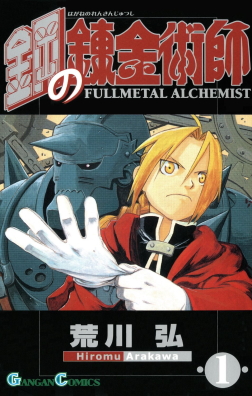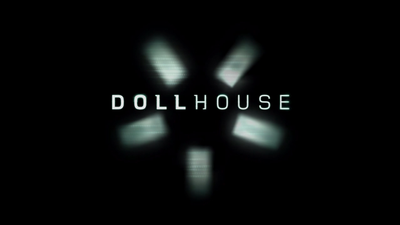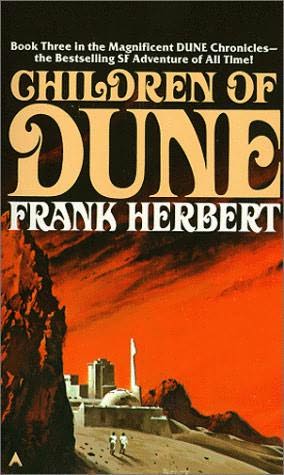This post ended up being more of a comparison piece than I intended, contrasting the game design philosophies of WoW and EverQuest but I do get to WoTLK eventually. So dive in, the text is deep.
My first experiences in online gaming were with Sony’s EverQuest just after it had launched Ruins of Kunark, the game’s first expansion pack. I was exhilarated by the rich potential the game represented, but repeatedly heartbroken as I attempted wring it from the actual product. Despite the title’s implied promise, it was incredibly difficult to find quests. I knew they existed through snippets from the general chat, and high level characters who ran around wearing their rewards, but they always seemed to lay somewhere just beyond the edge of my periphery. Whenever I found a quest giver, the chain was either broken, restricted to a specific class/race/deity, or simply not worth the effort. The mechanics of the game were also viciously punitive. I spent the vast majority of my early playtime corpse running; an activity every ounce as unpleasant as it sounds. There was also a period where, if you could not retrieve your body within a certain time limit, the game would delete your body and everything you were carrying on it, leading to many tearful nights where I struggled to retrieve my mangled corpse from some wretched pit. Since you had no armor or items, subsequent deaths were almost inevitable, and each one produced another decoy which would frustrate your search for the original. Amusing in hindsight. In practice? Not so much. As with most things massive, multiplayer and online, the social component was the core appeal. I enjoyed wandering around the tunnel in Eastern Commons where high level characters would gather to barter, and I found a limited sense of belonging in conversation with other introverted kids. Naturally, that all went to hell when Sony launched Shadows of Luclin, the game’s infamous third expansion. The organic barter economy was abandoned in favor of a bazaar system which was broken at launch and a graphics ‘upgrade’ that replaced the game’s endearingly blocky avatars with some of the most hideous character models the world will ever witness. The increased hardware requirements caused a lot of players to leave, exacerbating the exodus to other MMO’s, which the update was designed to forestall. Perhaps this is the best way to convey the impossible lameness that was Shadows of Luclin.
Yet nearly a decade later, EverQuest is still soldiering on, having launched its fifteenth expansion pack last November (no link, the almighty wikipedia doesn't even acknowledge its existence). One thing which has certainly helped the game’s longevity is that Sony learned its lesson with Shadows of Luclin and has not substantially changed the games hardware requirements since. But one has to wonder who is still playing EQ, to say nothing of why. It is tempting to conclude that after years of abuse and torment, the dark forces at SOE have broken something inside their customers, convincing them that being beaten is a privilege, and that the willingness to withstand such treatment is a desirable trait called “Hardcoredness.” I exaggerate, especially considering how much crueler Ultima Online was, and the game did make some genuine improvements over the years. I tenuously continued to play until EQ’s fifth expansion, Legacy of Ykesha, when Sony convinced me to quit in earnest by making Frogloks into a godly playable race. Not only did this break the balance of the game, it dealt a fatal blow to the games narrative, which was already laughable, even to my fifteen year old sensibilities. For those of you who play WoW, an approximate equivalent would be if Blizzard suddenly decided to make Murlocs into a playable hero-race in the next expansion. Actually, knowing their sense of humor, it’s a prospect which seems frighteningly plausible.
When I started playing World of Warcraft in 2004, I felt like a third world refugee, delighted and mystified by conveniences others took for granted: Quests clearly displayed by bright gold exclamation points hanging over character heads and on an ever present GPS-like minimap, chairs your character could actually sit in, and most importantly of all, dying was not a tremendous ordeal. It was even kind of cool, with the grayed out color pallet and your ghost character’s ability to run on water. The starting zones are very welcoming, abundant with easy tutorial-like quests that yield the necessary equipment for players to progress. Rather than making the game rewarding by building a system so unforgiving that any degree of success feels like an achievement, Blizzard presents players with a steady stream of new items and spells, while making the process as convenient as possible, even to the point of being nonsensical at times (the same size of armor and weapons fit every race of character), yet for some reason, people find this idealized un-sense more appealing than the alternative. It's almost like they play video games to escape reality's inconveniences.
Yet these are mere trimmings. The greatest appeal of WoW’s gameplay is that each class presents players with a unique, but versatile combat system while remaining relatively balanced in power. Even though EQ’s character creation system presents players with more classes to choose from, controlling them felt identical. Worst of all, some classes, like healers, are not viable for solo-play later on, and some race and class combinations will end up being fundamentally weaker than others. In WoW, a character’s race is mostly cosmetic, and any available class/race combination is viable. Also, while each class has distinct gameplay mechanics and a specific role to fulfill in parties, they can be adapted to fit whatever play style you prefer (solo questing, PVP, or dungeon raiding). I don’t mean to say WoW is perfectly balanced. Blizzard constantly has to tweak the classes to keep them on even footing. My main character is a paladin, and for a long time Blizzard didn’t really know how to make the class work. Now my patience has been rewarded with godliness.
Yet while the classes are relatively even in power to one another, level based elitism lingers, though I suspect that’s a problem MMORPGs will never be free from. Since the game system is based on numerical levels of power, power based stratification and discrimination are inevitable. Even if you’re just in it for the story, you won’t be able to debate your way into a cool dungeon if you can’t fight its mobs yet. That part of the universe is closed to you until you can pay your dues in the currency of experience, and graduate to a new grade in ass kicking. But Blizzard is does its best to allow average customers to get the most out of a subscription, which I believe is a noble endeavor.
Whenever such changes are made however, the elite players will start in with the “When I was your level I had to fight both ways through a dungeon, debuffed and I learned to like it!” speeches. It’s reasonable to want your hard work to amount to something, but it always strikes me as strange when people gauge the value of their leisure activities in terms of quantifiable work.Then again, where the game’s first expansion, The Burning Crusade, was concerned, they had a right to grouse. Epic gear people spent months questing for in the original game was rendered obsolete by basic equipment in the expansion. The fairly even correlation between effort and rewards people had come to expect from the game was broken. Most people didn’t complain too bitterly, since they were getting superior gear, and I was surprised by how little bitching actually occurred.
Another detrimental change that occurred during the big BC shift, was that Blizzard suddenly realized just how marketable their universe was. This resulting ‘growth’ subjected their lore to the same sort of weary dissolution which plagues other long running bodies of fiction: stories rife with nonesensical alliances and ret-conned deaths. While EQ had to weave its fantasy world from whole cloth, the original trilogy of Warcraft strategy games provided Blizzard with recognizable characters, locations, and a compelling story to build on; yet that considerable advantage had become a liability as fans were left to argue what canonical Warcraft should resemble. One could make a strong argument that this is the inevitable fate of a fiction opened up to its loving public: “the tragedy of the creative commons” so to speak.
I like to think that there is genuine narrative potential for MMOs however, and Wrath of the Lich King has done a lot to keep my optimism alive. The earliest teaser had a strong narrative vibe, which only grew stronger in CGI movie, but I was skeptical until I heard about the pre-launch event. Capital cities, thought of as universal safe havens, were over-run with throngs of undead that would infect players and force them to turn against other players, even on non-pvp servers. It was a ballsy move met with a harsh outcry and more than a couple cancellations, but it also showed that Blizzard is serious about telling a story in their world. I must confess I don’t know how bad the zombiefest was, since I was taking a break from the game. Such rest periods are vital, lest you be drawn too deeply into the virtual world and lost to the real one. The quest chain which introduces the much talked about Death Knight “hero class,” is also decidedly story driven. Arthas also frequently pops up in Northrend, establishing him as a more imminent threat than Illidan was in TBC.
In addition to the buffed storytelling, the increase in item power feels much more natural than it was in the crusade and Blizzard has continued to promote accessibility by giving all dungeons and raids a five-player mode, so you can tackle Icecrown Citadel (when it opens) without finding twenty other people who are free, well equipped and competent. The level design is much more detailed and varied than it was in burning crusade as well, and there are some truly beautiful environments to explore. Even the music is stellar. If you’ve tried WoW, and it didn't tickle you, Lich King won’t change your mind. But if you’ve never played, now would be a great time to take a stab at it.

























